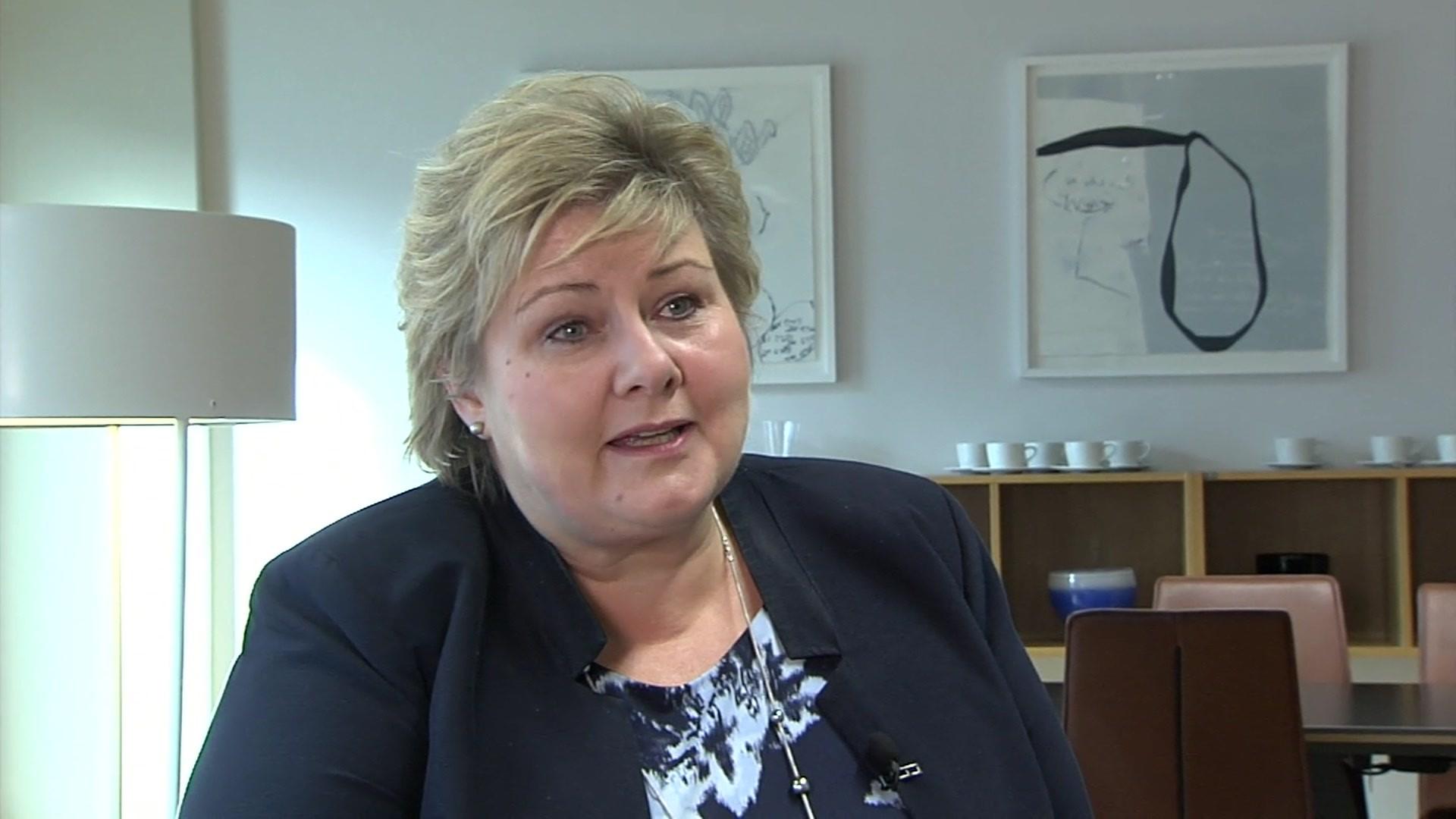How Norway's relationship with the EU has split views
- Published
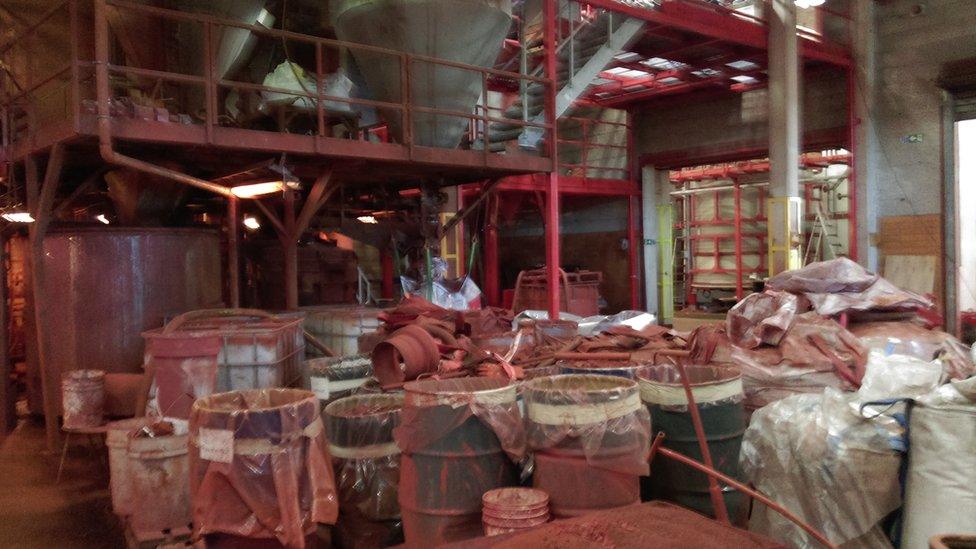
Lars Tomasgaard watches as one of his workers carefully guides a large, black metal cauldron from one side of his factory to the other. It is hanging from a crane and inside the pot is molten copper, bubbling at 1,250 degrees celsius.
"It's scrap copper, any kind of copper. It comes from scrap dealers around northern Europe," says Mr Tomasgaard.
His factory on the edge of the Norwegian capital Oslo smells of hot metal. In some parts of the building, everything is caked in red copper dust.
Mr Tomasgaard's company, Nordox, turns the metal into copper powder to be used in specialised anti-fouling paint for the shipping industry.
Nordox sells its products globally, but its biggest markets are nations in the European Union.
The firm benefits from the free trade deal that Norway has with the EU.
The free trade deal means Mr Tomasgaard can sell his product to customers in the EU without any tariffs - essentially import taxes - and so puts his products on a level playing field with similar companies in Germany, Spain or the UK.
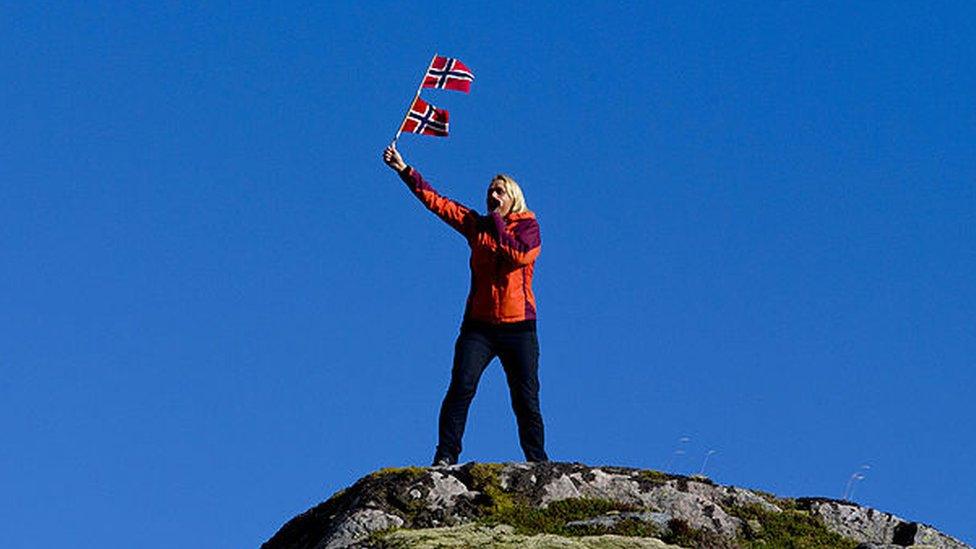
Not everyone believes that Norway's current relationship with the EU is working
This Scandinavian nation of five million people is not a member of the EU but has access to its single market, with the exception of agriculture and fishing. It makes annual financial contributions to the EU and is part of the Schengen borderless area allowing free movement of people.
It is often used as the perfect example of how a country can be successful in Europe without being part of the European Union. Yet many Norwegians believe the current arrangement is not working, and opinions remain polarised.
Mr Tomasgaard complains EU rules are putting a "bureaucratic burden" on industrial firms, but nonetheless says he'd rather Norway became a full member of the European Union.
"We definitely should be a part of the EU - absolutely. It's better to be within and then possibly change it than be on the outside and have no influence at all."
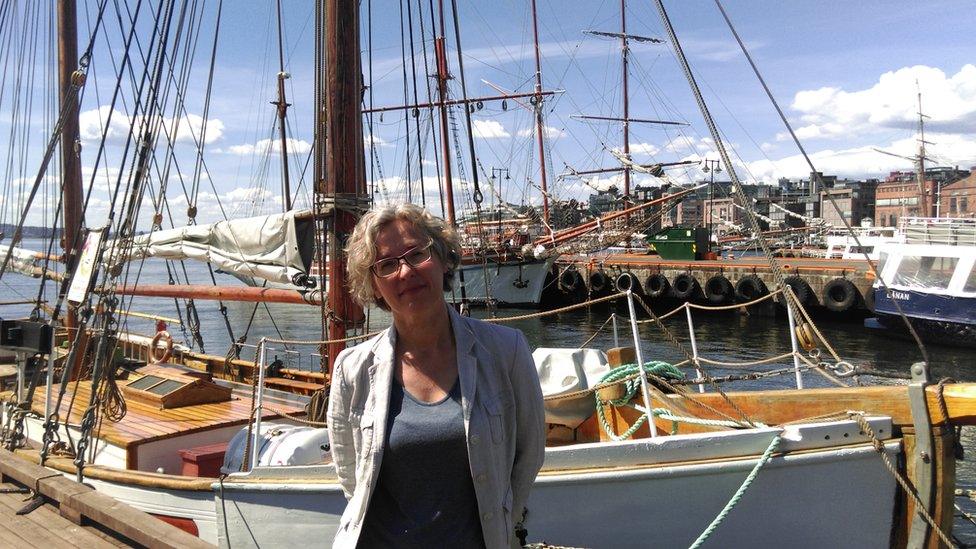
Kristin Alnes from the Norwegian Seafood Federation would prefer full EU membership
Norway's fishing industry agrees.
The nation's seas are rich in fish helping to make the country the world's second biggest seafood exporter.
But fishing and agriculture are not part of Norway's trade deal with the European Union. So 70% of fish caught in Norwegian waters have tariffs slapped on them before they reach shops abroad.
In total, the industry says it pays 1bn Norwegian krone in duties to the EU every year.
"The lack of free trade with the EU is very difficult for us and has been a problematic area for years. Our fish become more expensive and our exporters have less income," says Kristin Alnes from the Norwegian Seafood Federation.
She believes that full EU membership "would be the best solution", but acknowledges public opinion is not on her side.
In fact, opinion polls suggest most Norwegians are happy with the status quo.
The country has rejected EU membership in two referenda - the last one was in 1994.
Like the bulk of the population, the country's influential farming lobby is keen to avoid any further integration with the European Union.
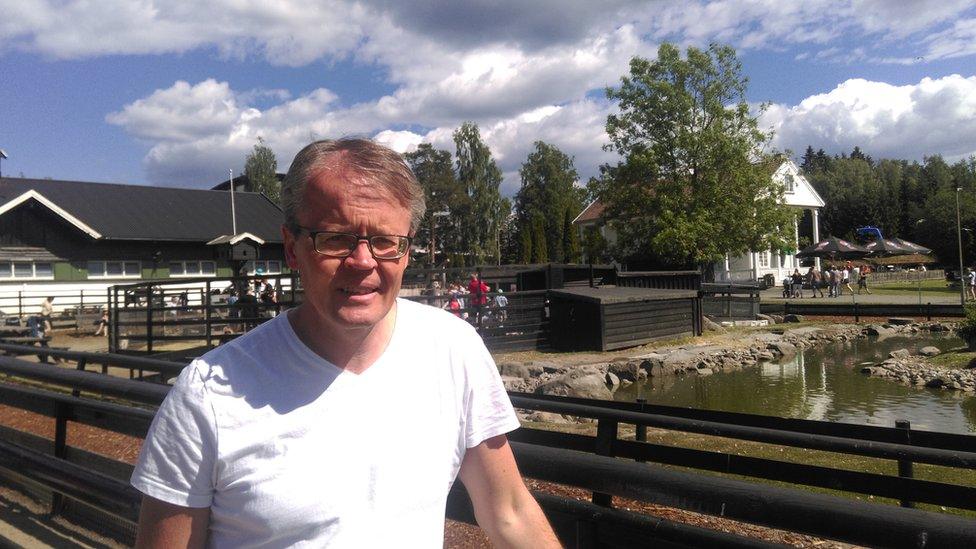
Ola Hedtson from the Federation of Agricultural Co-operatives argues the lack of full EU membership allows it to producer better quality food
On a city farm that educates families about agriculture, Ola Hedtson from the Federation of Agricultural Co-operatives, says that if Norway joined the EU and food was freely traded, Norway's farmers would simply not be able to compete on price.
"It's expensive to produce food because of the climate, the topography and the geography. Food will always be expensive to produce in Norway. It's not possible to produce at the same price as in Holland."
He also claims the country's lack of full EU membership means the food on sale in Norway is better quality.
"There is no country using less antibiotics than Norway. That is something we have gained because we are not a member of the European Union and [don't have] have their regulations. In Norway we have also tried not to take the fastest road to the cheapest product. We have higher standards. "
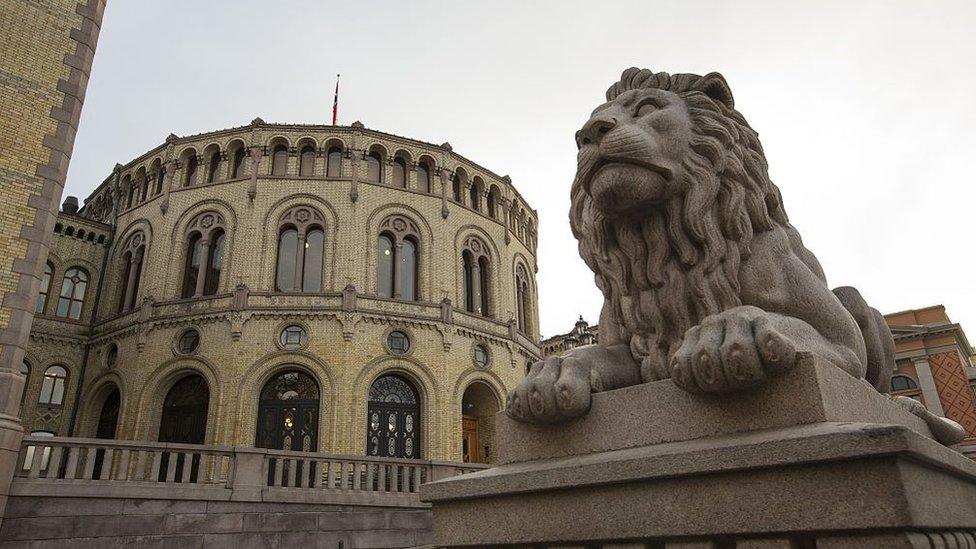
The equivalent of five EU rules are introduced into Norwegian law for each day parliament sits
In the park and streets outside the parliament in Oslo the state of the country's democracy isn't evidently on the minds of the sunbathers and drinkers.
But dig beneath the surface and many Norwegians are concerned.
The equivalent of five EU rules are introduced into Norwegian law for each and every day this parliament sits. Yet no MP here can vote those rules down.
Norway has a lack of "democracy and sovereignty," according to Katherine Kleveland who runs a campaign called NO 2 EU. The group opposes full EU membership, but also wants Norway to tear up its existing European trade deal.
"The world is bigger than the EU. We want to be a part of the whole world and make our own choices. We want a trade agreement without being a part of the EU's laws and regulations," she says.
Norway has higher than average immigration levels for a European country. But unlike discussions about the state of Europe in many countries, the issue is not controversial here.
"We have needed all the people coming to Norway," says Ms Kleveland.
With such divergent views on the best arrangement for Norway, the government has chosen to leave its relationship with the EU as it is.
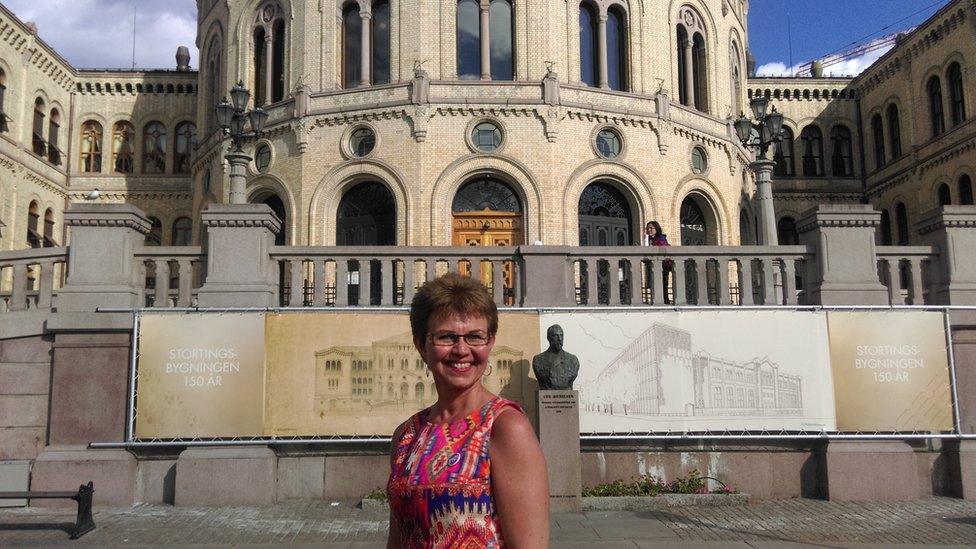
Katherine Kleveland who runs a campaign called NO 2 EU, says immigration isn't a concern in Norway
The Cabinet Minister Vidar Helgesen - a pro-EU membership Conservative - says Norway's relationship with the bloc is economically beneficial but is not as democratic as he would like.
"It does provide most Norwegian businesses with the market access they need. It also provides Norway with the opportunity to have labour immigration big time from EU member states. That has served our economy very well," he says.
Yet this most ardent of Norwegian Europhiles also believes that there are problems with the status quo.
"It's not necessarily good for our democracy. We pay more or less on par with what we would have to do as a member state."
He believes that EU membership would strengthen the country's influence in Europe, but acknowledges the Norwegian people have "little appetite" to have another referendum.
However, Mr Helgesen says if Britain does vote for an EU exit in the 23 June referendum, then this might change views in Norway.
"Much will change for Europe in the event of a Brexit and much will change for Britain, and much of that change will be for the worse," he believes.
- Published21 January 2016
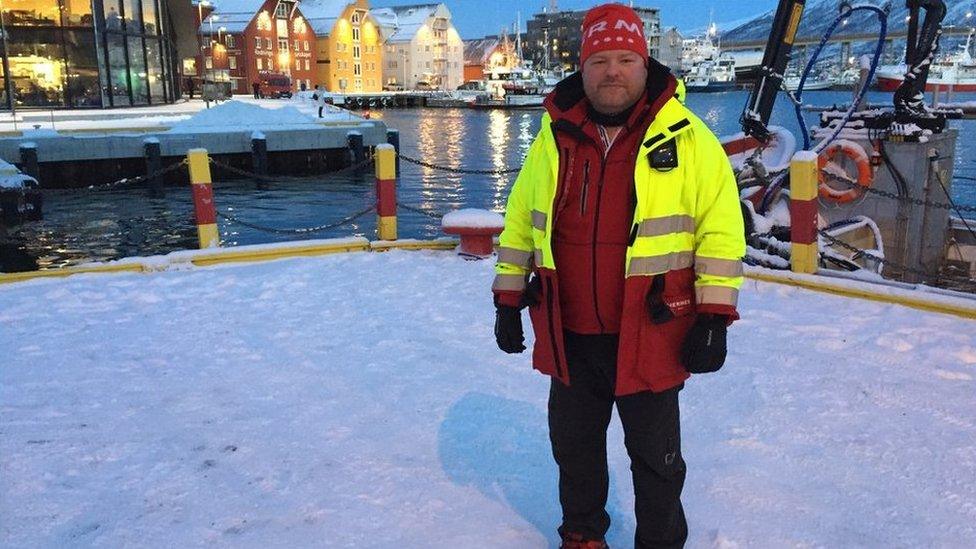
- Published11 May 2016

- Published22 February 2016
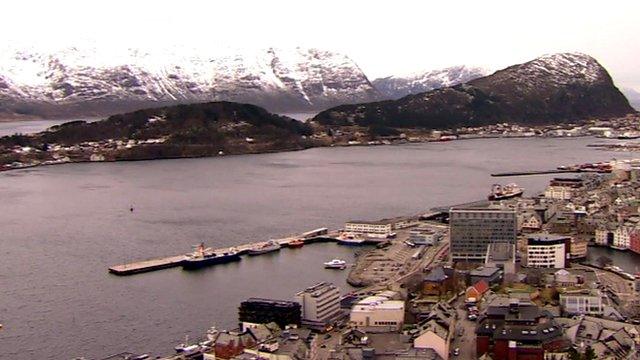
- Published2 March 2016
